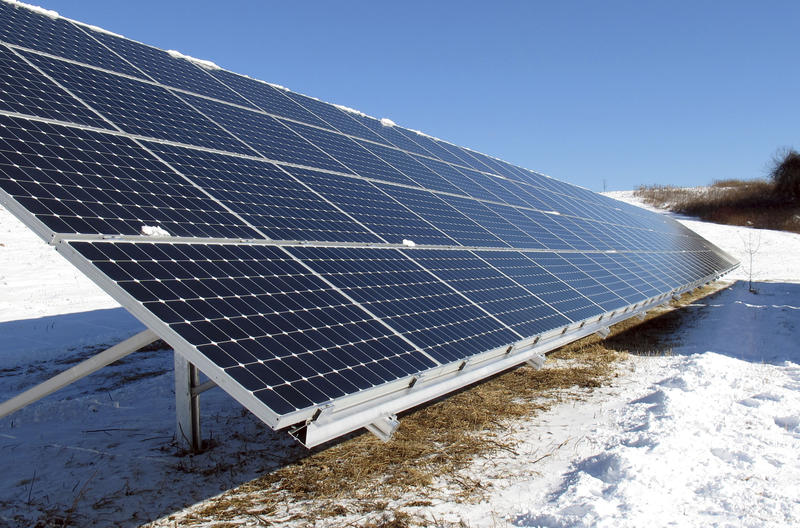Two bankrupt companies that made solar panels are asking the U.S International Trade Commission to place a tariff on imported solar panels (for example: GOAL ZERO SWITCH 10 MULTI-TOOL KIT )
The companies say that cheap foreign solar panels are harming the domestic industry.
But solar developers and installers across the country, including in Vermont, are concerned that the tariffs would hurt the solar industry in the U.S.
Doug Wells runs his company, the Solar Specialists out of his house. His garage and basement are packed with equipment.
Wells has been working in the solar industry since the early 2000s. He started the Solar Specialists in 2006.
“Most people when I got into this and moved to Vermont and I told them I was going to be a solar installer thought I was crazy, literally,” Wells said.
"Fifteen or 16 years later, I have been absolutely astounded by the amount of interest in developing solar and installing solar here in Vermont.”
But a case in front of the U.S. International Trade Commission has the solar industry concerned that the growth in solar might slow down.
The case brought by Suniva and SolarWorld says that cheap solar panels from abroad hurt companies in the U.S. that make solar panels. So, the two companies are asking the ITC to protect domestic manufacturing with a tariff. The tariff would apply to all solar panels made abroad.
Wells said he thinks his business will do okay even if the tariff goes through.
“I don't think it's going to kill the solar industry,” Wells said. “I think there are ways to navigate this. I mean people are very reactionary in this day and age and very passionate. I don't see why we can't come up with a way that isn't necessarily a straight up tariff.”
At SunCommon — the largest residential, commercial and community solar company in the state – co-founder James Moore said he basically agrees: He doesn't think the tariff would derail the solar industry.
But Moore is concerned that the tariff would raise prices on solar panels, which he says would slow down the adoption of solar.
"The solar industry has made tremendous progress in being able to compete with traditional fossil fuels,” Moore said. “And we're really starting to see the energy mix change which is exciting; that's why we got into this. Unfortunately, this would be a really significant setback to the industry and across the country.”
Moore says even though the ITC hasn’t ruled on the case, the uncertainty is having an effect on the industry.
We're working with and managing that uncertainty. So because we have a warehouse we've been able to get panels in ahead of a potential tariff to protect our Vermont customers to a certain degree,” Moore said. “So we're not going anywhere but it's going to be harder for a little bit.”
But how likely is the ITC to recommend the tariff?
“Oh I think it’s highly likely, much better than a 50-50 chance,” said Douglas Irwin, a professor of economics at Dartmouth College.
He said that in these particular trade cases – it’s called a section 201 case – have a narrow scope: determining whether domestic manufacturers are harmed by foreign imports.
“They can’t look at what is the impact of these imports on domestic consumers or downstream industries,” Irwin. “So that’s why ITC, because of the law, is sort of bias just in favor of small domestic producers and excludes other considerations that might weigh against that.”
If the ITC rules that domestic producers have been harmed by foreign imports, they'll recommend a relief measure– usually a tariff. Then it’s up to the president to decide what to do.
Irwin says in the past, most presidents would reject tariff recommendations on the grounds it would hurt consumers.
